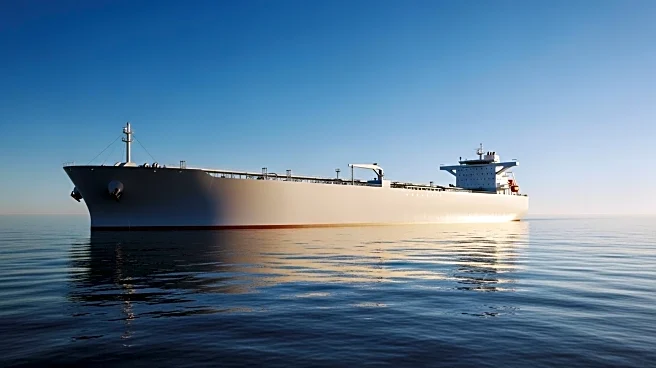What is the story about?
What's Happening?
The global marine bunker oil market is expected to grow significantly, reaching $280.7 billion by 2033. This growth is attributed to the increasing demand for cleaner marine fuels, expansion of maritime trade, and government mandates to reduce sulfur emissions. The Asia Pacific region, with major bunkering ports like Singapore and Shanghai, leads the market due to its high trade volume and infrastructure expansion. Countries such as China, South Korea, and India are enhancing their port capabilities and shipping infrastructure, contributing to the rise in marine fuel consumption.
Why It's Important?
The projected growth of the marine bunker oil market underscores the importance of cleaner fuel alternatives in the shipping industry, which accounts for a substantial portion of global trade. As environmental regulations tighten, the demand for low-sulfur fuels and sustainable practices will drive innovation and investment in the sector. This shift can lead to significant environmental benefits, reducing the shipping industry's carbon footprint and promoting sustainable maritime operations. Stakeholders, including fuel providers and shipping companies, stand to benefit from increased efficiency and compliance with international standards.
What's Next?
The market is expected to see increased investment in cleaner fuel technologies and digital monitoring systems to enhance fuel efficiency. As new vessel constructions incorporate dual-fuel and hybrid propulsion systems, the industry will likely experience further diversification and innovation. Stakeholders may focus on developing partnerships to advance fuel technology and policy compliance, ensuring sustainable growth and adaptation to evolving environmental regulations.
Beyond the Headlines
The transition to cleaner marine fuels reflects broader environmental and economic shifts, emphasizing the need for sustainable practices in global trade. This development may influence policy decisions and encourage international collaboration to address climate change and environmental impact. The focus on cleaner fuels can also drive technological advancements, fostering a more resilient and adaptive shipping industry.















